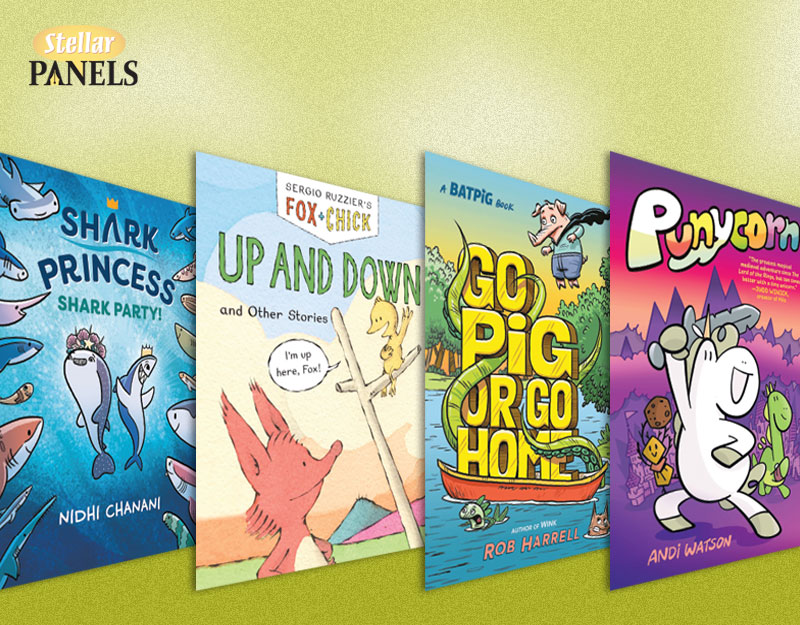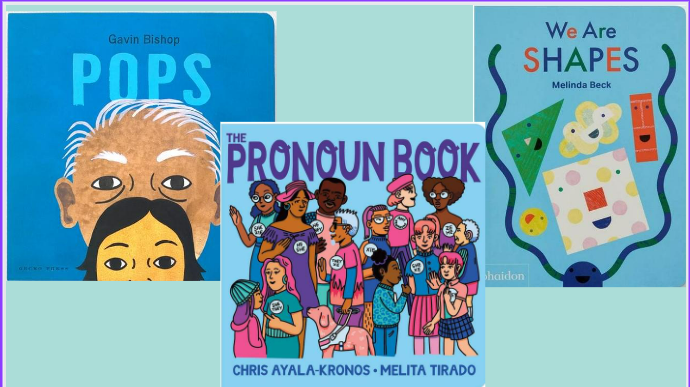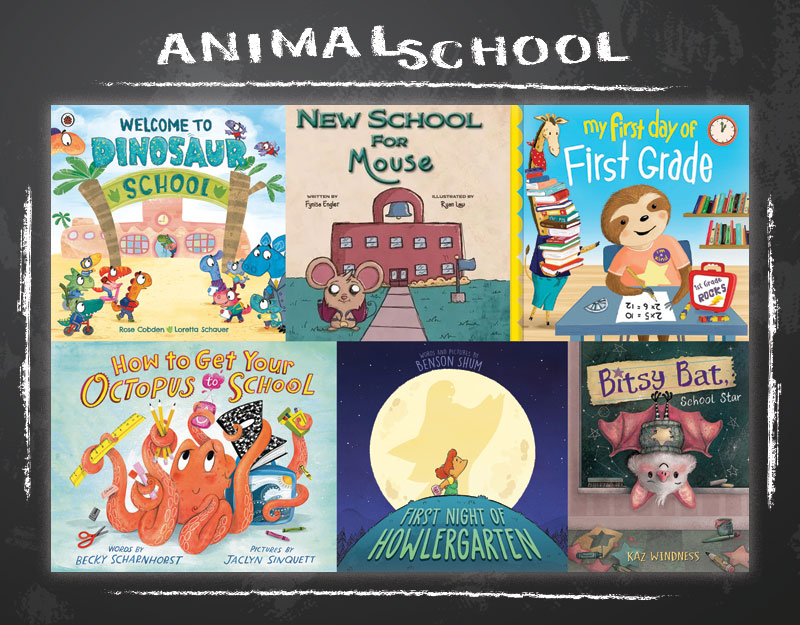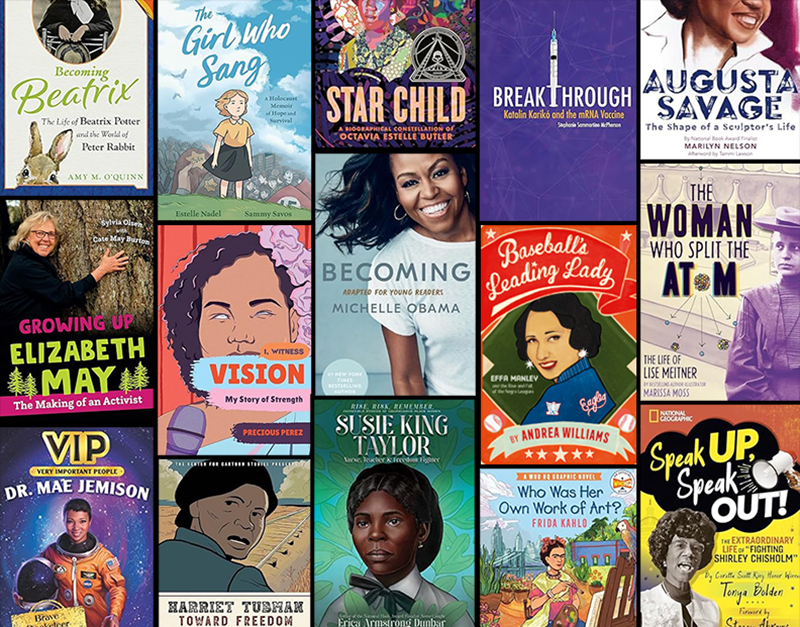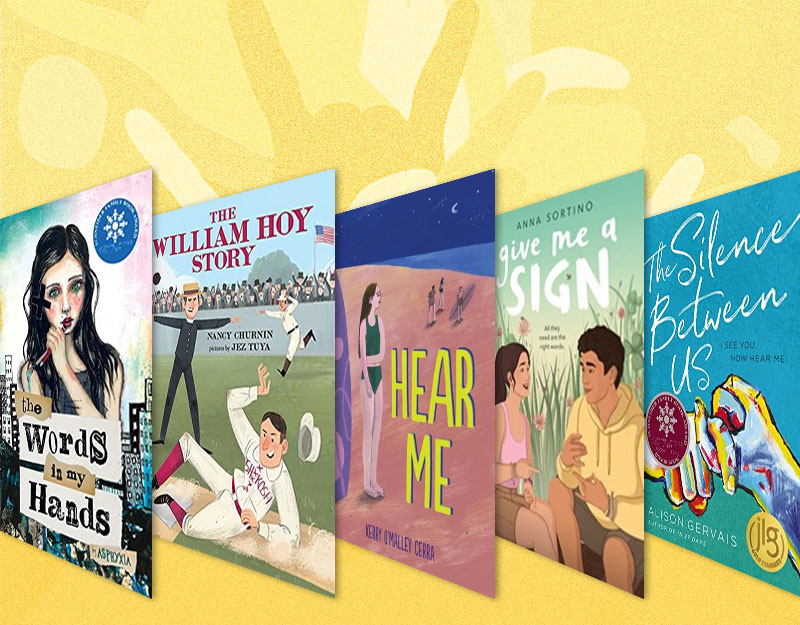When We Come Together, Our Voices are Stronger, a guest post by A. M. Dassu
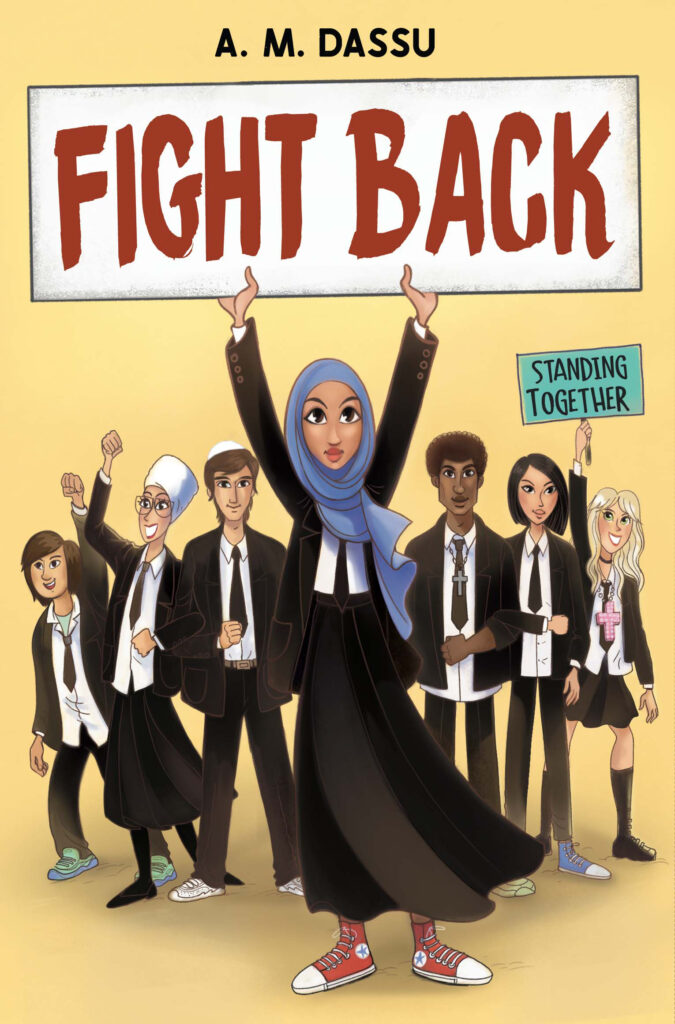
Every time there is a terrorist attack, the first thing I think after praying that people haven’t been hurt is that I hope the attacker is not a Muslim. I know what will follow if they are. Young people are affected by global news; it seeps into perceptions, conversations, and then sometimes actions. Growing up, I didn’t encounter animosity the way that my children do now. The conversations that I have with my children—about the political climate, the language being used, the need for them to be exemplary so that no one will put them on a “terror list”—are sadly wholly different to the conversations I had aged eleven about music, reading, arts, and crafts. But I have no choice as I try to help them navigate an increasingly prejudiced world.
Fight Back was inspired by recent terrorist events and the subsequent rise of the far right. Islamophobia and prejudice are a sad reality for people from Muslim backgrounds. Hate crime is on the rise, and anti-Muslim attacks have risen year after year. Fight Back challenges the stereotype constantly depicted in the news and in films that Muslims aren’t peaceful and a Muslim woman can only be empowered if she doesn’t wear a headscarf or if she is not religious. This story seeks to authentically represent the true lives of Muslims, particularly independent women who are free to make their own decisions.
ADVERTISEMENT
ADVERTISEMENT
I wrote Fight Back because I wanted to put a spotlight on a community that is always in the news—for the wrong reasons—and explore what that might feel like in a school and family setting. I also wanted to explore what it feels like to struggle to express your identity and then find the courage to be proud of it, to realize that you’re not alone and many others from all sorts of backgrounds experience the same. Most of all I wanted to show that when we come together, our voices are stronger.
My first novel looked at what it’s like to be a refugee. This novel looks at what it’s like to be a Muslim today while panning out and exploring the experiences of others who are also discriminated against. It shows what we have in common and the possibilities when we come together.
Through Fight Back I wanted to show a different side to a story the world thinks it knows; to show how Islamist terrorism affects Muslims and also how far right beliefs not only affect Muslims, Jews, and people of color, but equally the families of far right ideologists. I also wanted to show that it is not only a white working-class problem; in Fight Back, we see how a negative media narrative affects characters from various religious and ethnic backgrounds.
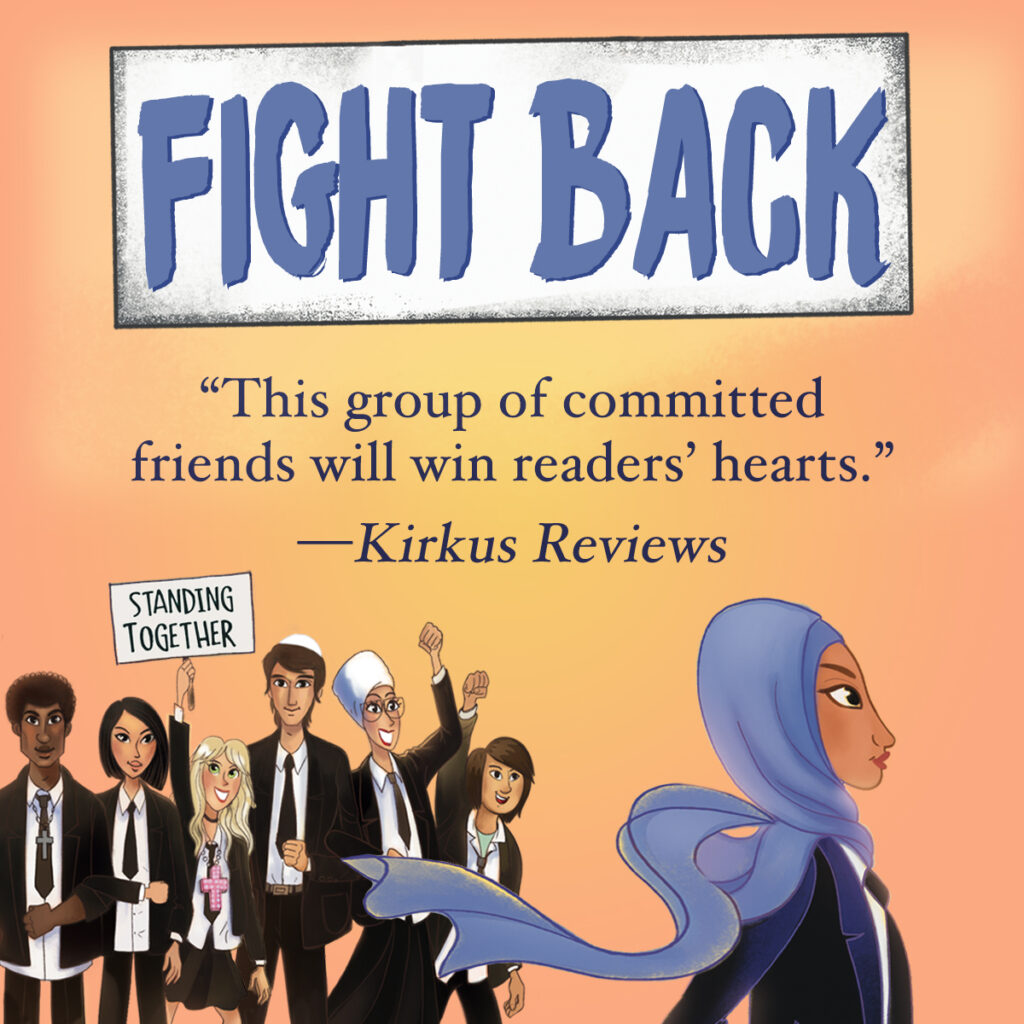
We’ve seen the rise of the far right and division of communities across the world in recent years. Far right politicians have emboldened those with previously hidden racist, xenophobic, antisemitic, and Islamophobic ideologies to come forward and act on their beliefs. Research shows the far right have engaged with young people online during the pandemic, and it is a far bigger problem than once thought. To stamp out hateful ideologies, we need to start discussing what’s happening at home and school early. Stories are a vital tool in showing there is nothing to fear, that there is another side to the narrative we might have been told. It is only through such stories that we can learn about—and from—different lives and cultures, and hopefully bring people together. And this is what drove me to write Fight Back.
The research for this book was harrowing. The most difficult: articles and footage of young people fleeing a concert bombing, seeing far right posters and leaflets—just like the ones depicted in this story— displayed on lampposts and posted into homes in the UK as recently as 2017 and also 2022, speaking to girls Aaliyah’s age who faced the same anxiety and prejudice, and listening to people with the diverse lived experiences featured in this book about being judged and their identities stereotyped.
Stereotypes belittle a part of a young person’s identity and can be immensely harmful. Aaliyah’s lived experience is individual and her journey uniquely her own, but through it she learns that others are going through similar experiences, and even though they are different to her, they have a lot in common that can lead to solidarity. My hope is for anyone who hasn’t been able to express themselves the way they want, or has been excluded, or doesn’t feel like they belong, to see themselves in this story. Many people experience such struggles, but one thing is true: we are stronger when we support each other.
Growing up and finding your identity is never easy. Not everyone is accepted for who they are or who they want to be. But I hope young people who read this story will know that they’re not alone.
Let’s Fight Back together!
Fight Back will be published on October 11th 2022 by Lee and Low. Order here or from good bookshops.
Meet the author
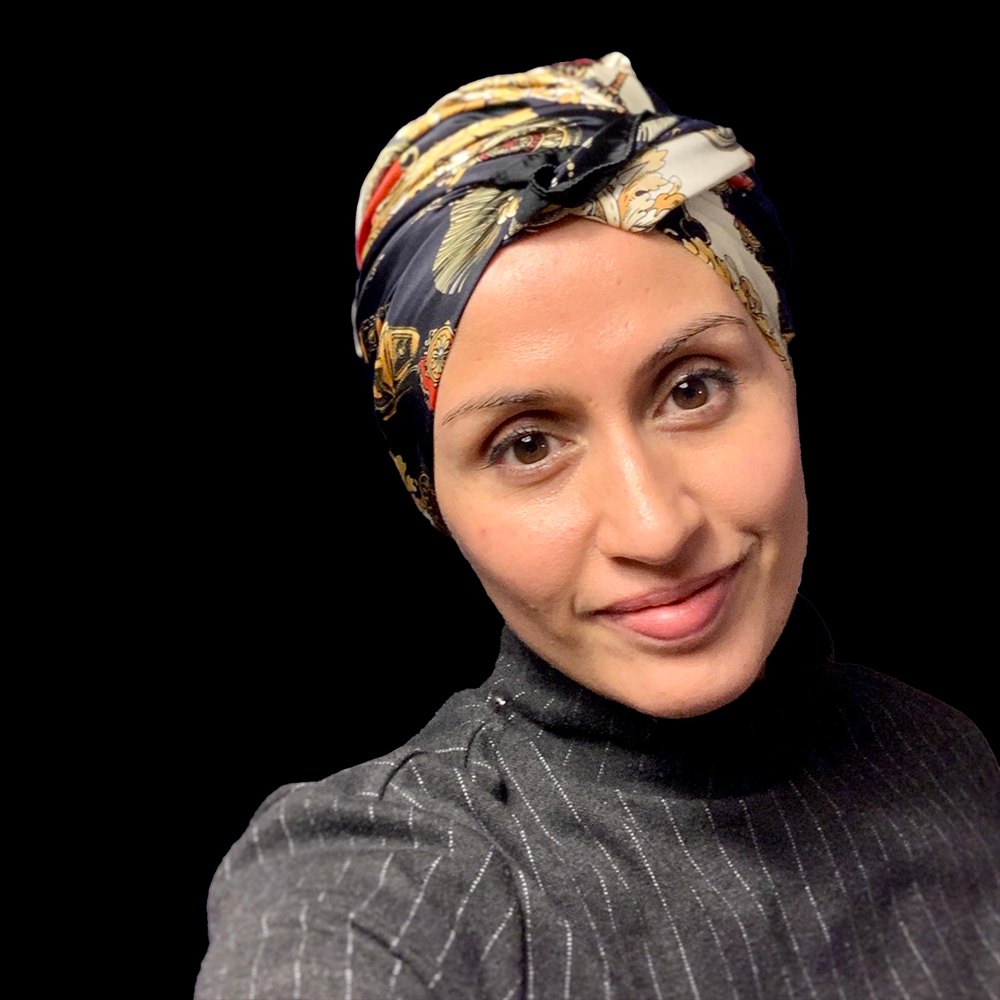
A. M. DASSU is the internationally acclaimed author of Boy, Everywhere, which has been listed for 25 awards, including the Waterstones Children’s Book Prize, the Carnegie Medal, is the 2021 winner of The Little Rebels Award for Radical Fiction and is also an American Library Association Notable Book. Her second novel, Fight Back was Book of the Month in The Guardian on publication and also in all independent bookstores across the UK.
She is a director at Inclusive Minds, which is an organisation for people who are passionate about inclusion, diversity, equality and accessibility in children’s literature, and one of The National Literacy Trust’s Connecting Stories campaign authors, aiming to help inspire a love of reading and writing in children and young people.
A. M. Dassu grew up in the UK dreaming of becoming a writer but studied economics instead and worked in marketing and project management before realising her dream. She writes books that challenge stereotypes, humanise the “other” and are full of empathy, hope and heart. Her work has been published by The Huffington Post, Times Educational Supplement, Scoop magazine, DK Books, Scholastic, Lee and Low, Old Barn Books, Oxford University Press and Harper Collins.
You can find her on Twitter as @a_reflective, on Instagram as @a.m.dassu, or at amdassu.com
About Fight Back
ADVERTISEMENT
ADVERTISEMENT
Amina’s Voice meets A Good Kind of Trouble in this story about 13-year-old Aaliyah, who feels alone after putting on a hijab for the first time, but finds friends and allies through organizing a protest at her school.
Thirteen-year-old Aaliyah can’t wait for a concert by her favorite K-pop boy band, 3W. She isn’t too concerned with stories on the news about the rise of the far right—after all, it doesn’t affect her—until a terrorist attack at the concert changes everything.
Local racists are emboldened and anti-Muslim rhetoric starts cropping up at school and on the street. When Aaliyah starts getting bullied, she knows she has to do something to stand up to the hate. She decides that, instead of hiding who she is, she will begin wearing a hijab for the first time, to challenge how people in her community see Muslims.
But when her school bans the hijab and she is attacked and intimidated for making her choice, Aaliyah feels alone. Can she find allies—friends to stand beside her and help her find ways to fight back?
Acclaimed author A. M. Dassu’s follow-up to Boy, Everywhere is an essential read to encourage empathy, challenge stereotypes, and foster positive action.
ISBN-13: 9781643795881
Publisher: Lee & Low Books
Publication date: 10/11/2022
Age Range: 11 – 14 Years
Filed under: Guest Post
About Amanda MacGregor
Amanda MacGregor works in an elementary library, loves dogs, and can be found on Twitter @CiteSomething.
ADVERTISEMENT
ADVERTISEMENT
SLJ Blog Network
2024 Books from Coretta Scott King Winners
Monster Befrienders and a Slew of Horror/Comedy: It’s a Blood City Rollers Q&A with V.P. Anderson & Tatiana Hill
Monkey King and the World of Myths: The Monster and the Maze | Review
Parsing Religion in Public Schools
ADVERTISEMENT



